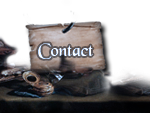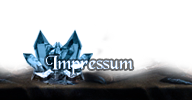27.05.2011 00:57
[Interviews (english)]
PC Games Interview with Michael Rüve about JoWood
PC Games has asked Michael Rüve a few question about their collaboration with JoWood. The original article is here.
We begin this interview series with Michael Rüve, who has been the business director for Piranha Bytes since 2002. We'd be glad to hear your comments and questions about these articles.
PC Games: Michael, the fate of Piranha Bytes is entwined with that of Jowood. It was inevitable that conflicts with developers such as yourselves would reach the public. Today came the end for Jowood. Would you agree that Jowood kept itself busy with its own problems instead of the development of games?
Michael: During our collaboration with Jowood, from 2002 to 2007, I have dealt with six different board directors. Of course, each of them had their own visions as to how a firm's strategy should look like. Whoever has worked in a big company, in which the words "restructuring" or "strategy change" are tossed about by the management, knows how many resources that takes, and how it throws day-to-day businesses off balance. The fact that they've had to bear the brunt of substantial financial issues over the time really didn't make things any simpler.
PC Games: Your colleague, Michael Hoge, declared to the public at the dawn of May, in an interview about Gothic 3, that everything began when "the publisher forced us to release Gothic 3 before we'd finished it." Why didn't you refuse to publish the game, given its state?
Michael: As developer, you are contracted to develop a game - usually by a publisher. The product belongs to the customer. If he decides that enough has been done and the game is to be released, you - as developer - do not have a lot of options to go against that. You could only break the contract with all the consequences that brings. We've already seen the results of this, back in 2007. We had a lawsuit thrown against us, out of the blue. The odd thing is, the lawsuit wasn't only against us as a company -- which was bad enough -- but also against me and Michael Hoge as private persons. We won that lawsuit. But had we really broken the contract and refused to hand over the game, things would have ended differently.
PC Games: How do you explain the enormous strength of the Gothic fans, who, despite the third part's many problems, were near to idolising the game, and have, several times, chosen it the game of the year, even developed game patches themselves?
Michael: It seems the game wasn't as bad as people considered it. There was someone who even went as far as to call Gothic 3 "a diamond in the rough," once. People who saw things on the same level had a go at fixing the game with the tools they were given. It's really amazing what they created in the face of adversity.
PC Games: Jowood and Piranha Bytes saw their hefty dose of criticism from the fans. Were there moments when you saw yourselves as unjustly attacked?
Michael: Sometimes, yes, but overall, I'd say no. We're no saints. Isn't good, qualified, apt criticism better than general indifference, for any creator at all?
PC Games: The rights to "Gothic" are to return to you upon the end of Risen 2's development. You must surely have some rough plans for the day when this will happen -- what do you think?
Michael: Of course, we have some basic ideas -- but nothing concrete about what we'd really like to do, currently. We're hard at work on Risen 2 right now -- a team with no more than twenty people just can't deal with so many big projects at once. We'd spread ourselves far too thin.
PC Games: If you could work again on G3 - for a day or a week - what would you do first?
Michael: Let the matter rest. We made the last changes in 2007. From then on, the work was given to someone else, without our being able to see what other changes were being discussed behind the curtains. That was about four years ago. We'd only need time go get the hang of it again; a week -- but probably more than that -- would be insufficient. The game's as it is. The fandom has made many improvements, and has set things in order. In my opinion, the public opinion is harsher than it should be -- but it's in the nature of things to see the flaws emphasised more than the strong points. It wasn't meant to be a Gothic 1 or 2 -- ever! Even if the hardcore fans of Gothic 1 and 2 won't like hearing this -- there are many people who enjoyed Gothic 3 more than its predecessors.
We begin this interview series with Michael Rüve, who has been the business director for Piranha Bytes since 2002. We'd be glad to hear your comments and questions about these articles.
PC Games: Michael, the fate of Piranha Bytes is entwined with that of Jowood. It was inevitable that conflicts with developers such as yourselves would reach the public. Today came the end for Jowood. Would you agree that Jowood kept itself busy with its own problems instead of the development of games?
Michael: During our collaboration with Jowood, from 2002 to 2007, I have dealt with six different board directors. Of course, each of them had their own visions as to how a firm's strategy should look like. Whoever has worked in a big company, in which the words "restructuring" or "strategy change" are tossed about by the management, knows how many resources that takes, and how it throws day-to-day businesses off balance. The fact that they've had to bear the brunt of substantial financial issues over the time really didn't make things any simpler.
PC Games: Your colleague, Michael Hoge, declared to the public at the dawn of May, in an interview about Gothic 3, that everything began when "the publisher forced us to release Gothic 3 before we'd finished it." Why didn't you refuse to publish the game, given its state?
Michael: As developer, you are contracted to develop a game - usually by a publisher. The product belongs to the customer. If he decides that enough has been done and the game is to be released, you - as developer - do not have a lot of options to go against that. You could only break the contract with all the consequences that brings. We've already seen the results of this, back in 2007. We had a lawsuit thrown against us, out of the blue. The odd thing is, the lawsuit wasn't only against us as a company -- which was bad enough -- but also against me and Michael Hoge as private persons. We won that lawsuit. But had we really broken the contract and refused to hand over the game, things would have ended differently.
PC Games: How do you explain the enormous strength of the Gothic fans, who, despite the third part's many problems, were near to idolising the game, and have, several times, chosen it the game of the year, even developed game patches themselves?
Michael: It seems the game wasn't as bad as people considered it. There was someone who even went as far as to call Gothic 3 "a diamond in the rough," once. People who saw things on the same level had a go at fixing the game with the tools they were given. It's really amazing what they created in the face of adversity.
PC Games: Jowood and Piranha Bytes saw their hefty dose of criticism from the fans. Were there moments when you saw yourselves as unjustly attacked?
Michael: Sometimes, yes, but overall, I'd say no. We're no saints. Isn't good, qualified, apt criticism better than general indifference, for any creator at all?
PC Games: The rights to "Gothic" are to return to you upon the end of Risen 2's development. You must surely have some rough plans for the day when this will happen -- what do you think?
Michael: Of course, we have some basic ideas -- but nothing concrete about what we'd really like to do, currently. We're hard at work on Risen 2 right now -- a team with no more than twenty people just can't deal with so many big projects at once. We'd spread ourselves far too thin.
PC Games: If you could work again on G3 - for a day or a week - what would you do first?
Michael: Let the matter rest. We made the last changes in 2007. From then on, the work was given to someone else, without our being able to see what other changes were being discussed behind the curtains. That was about four years ago. We'd only need time go get the hang of it again; a week -- but probably more than that -- would be insufficient. The game's as it is. The fandom has made many improvements, and has set things in order. In my opinion, the public opinion is harsher than it should be -- but it's in the nature of things to see the flaws emphasised more than the strong points. It wasn't meant to be a Gothic 1 or 2 -- ever! Even if the hardcore fans of Gothic 1 and 2 won't like hearing this -- there are many people who enjoyed Gothic 3 more than its predecessors.
written by Faby




























